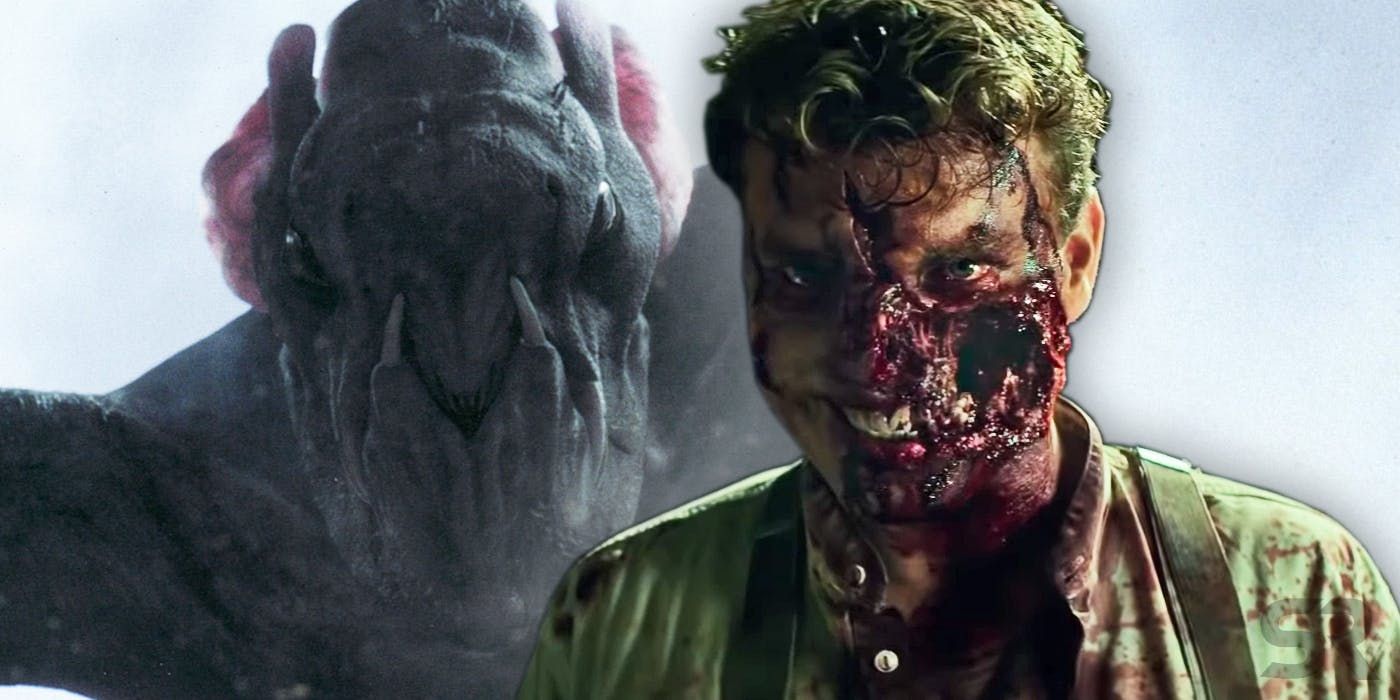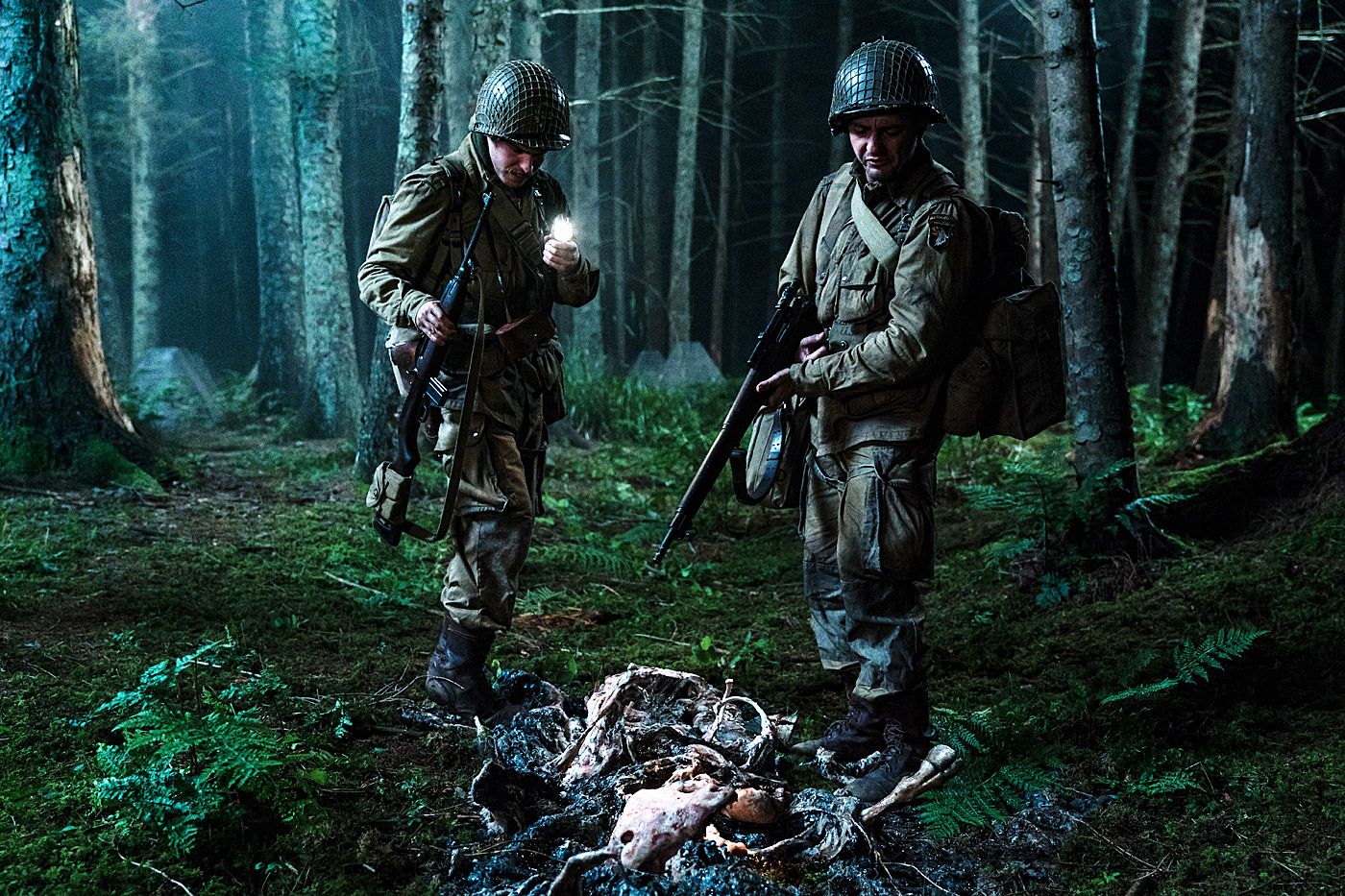WARNING: The following article contains spoilers for director Julius Avery's Overlord, in theaters now.
Fans speculated for some time that Overlord would be the fourth entry in the Cloverfield franchise, an assertion only fueled by The Cloverfield Paradox. Released earlier this year, that film focused on the Shepard satellite and its particle accelerator, which accidentally created rifts in space and time, setting up the events of Cloverfield and its sequel, 10 Cloverfield Lane. As such, that incident also provided a logical gateway for Overlord, which centers on Allied paratroopers battling Nazi zombies on the eve of D-Day.
However, producer J.J. Abrams insisted Overlord is a standalone film that has nothing to do with Cloverfield. And that's indeed the case. But given what unfolds in Overlord, there are a few ways the horror film could have easily followed the path set out by The Cloverfield Paradox.
RELATED: Overlord's Explosive Ending May Leave Some Loose Threads
Basically, the door Paradox opened means anything could bleed over into any reality, at any time. Sure, we saw monsters and spaceships invading the present day in the first two movies, but alien life and viruses also could seep into the past. In Overlord, Nazis are reanimate their dead using a serum extracted from soil beneath a French church. In the finale, when we finally see the area being mined, it's a reservoir of mysterious, black liquid. There's no reason why Paradox couldn't have brought over extraterrestrial elements that leeched into the French soil, thus creating this unique terrain to exploit.
Aside from a gateway to different realities filled with alien life, a rift could have been opened to a dark, demonic dimension, causing the soil and animals around to become infected. After all, why is this taking place beneath a church, of all places? In Overlord, the residents murmured about the holy location being an evil place, so there's the possibility something from a supernatural realm might have co-opted what lay beneath in order to turn the site into something unholy.
RELATED: From Revenge of the Zombies to Overlord, a History of Nazi Zombie Films
In Paradox, Mark Stambler (Donal Logue), a conspiracy theorist who wrote books about dimensions colliding, made it clear the mystical arena is something science shouldn't discount. When he spoke of the accelerator, he said, "Every time they test it, they risk ripping open the membrane of space-time, smashing together multiple dimensions, shattering reality, and not just on that station – everywhere. This experiment could unleash chaos, the likes of which we have never seen. Monsters, demons, beasts from the sea." Thus, he lays the groundwork for Paradox to transpose mystical tools needed for soil, and by extension, a serum, that can revive the dead.
It's also worth noting that, in Overlord, the Nazis' secret lab is filled with technology that seems ahead of its time -- from engines to incubators to revival tanks. A rift could easily have resulted in technology from the future, maybe from the Shepard itself, dropping into the past to this alternate Earth, giving the Nazis an opportunity to study and reverse-engineer it for their own nefarious purposes.
RELATED: JJ Abrams' Overlord Isn't a Cloverfield Sequel, But There's One on the Way
The Germans did admit they had other scientific labs conducting separate experiments in order to create a "thousand-year army," so who knows, maybe the Reich was building androids and other forms of super-soldiers elsewhere in Europe. Ultimately, while Overlord isn't a Cloverfield film, it has the monsters, technology and, most importantly, the innate sense of mystery that's synonymous with the universe -- or, as we now know, the multiverse -- Abrams kick-started in 2008.
In theaters now, director Julius Avery's Overlord stars Jovan Adepo, John Magno, Wyatt Russell, Bokeem Woodbine, Pilou Asbaek, Jacob Anderson and Iain De Caestecker.



